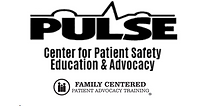KEEP UP YOUR MEDICATION LIST, IT MAY SAVE YOUR LIFE
- ilene Corina

- Jan 1, 2022
- 2 min read
Updated: Jul 18, 2025

In the New Year, Commit to Taking Charge of Your Own Health Care
by Ilene Corina
January 2022
Keeping a list of your medications may sound like merely a suggestion, but it can be a life-saving practice.
Recently, I accompanied someone to an urgent care center to be seen for a chest cold. The Physician’s Assistant (PA) who saw the patient asked about current medications. While I prepared to get the patient’s list, the PA said she had it. It was on the healthcare system’s portal. This patient was taking more than twenty medications for many different ailments.
The PA called in a prescription for the chest cold to a major pharmacy chain. When I went to get the medication, the pharmacist came to the window and explained that she had to call the doctor and have the medication changed. If this patient took the prescribed medication as well as a medication the patient was already taking, “it would stop his heart”. I was shocked at the words the pharmacist used and realized that she caught an error in prescribing.
Though we believe medical professionals must know all medications and potential interactions, they don’t. It is the pharmacist who is expected to catch any conflicts. But imagine if she missed it. This is a perfect example of the “Swiss Cheese Model” of medical errors (developed by James Reason, PhD, a leading expert on human error.) Each hole in a block of Swiss cheese represents a lost opportunity to catch an error, and if all the holes line up, the mistake can reach the patient. Many workers in the care delivery system can block a hole and prevent the error from reaching the patient. In this case, it was the pharmacist. At Pulse Center for Patient Safety Education & Advocacy, we have said for years that patients, families and advocates can also block holes but are not taught how. This is why we must be educated about how errors such as this can happen.
In this case, the patient was not elderly and would not be expected to die from heart failure any time soon. None of the patient’s ailment were life-threatening. But what if the patient were older and had more serious medical conditions? If this patient took the medication and their heart stopped, would the family ever know why?
Have a conversation with your pharmacist before each new medication is dispensed. Here are some suggested websites where you can do your own checking.
This information does not imply any affiliation, endorsement or promotion by Pulse Center for Patient Safety & Advocacy (“Pulse”); this information does not constitute medical advice and is not intended to be relied upon for medical diagnosis or treatment. Pulse assumes no responsibility and shall in no event be liable for errors or omissions in the contents of these websites or links to other websites.




Comments